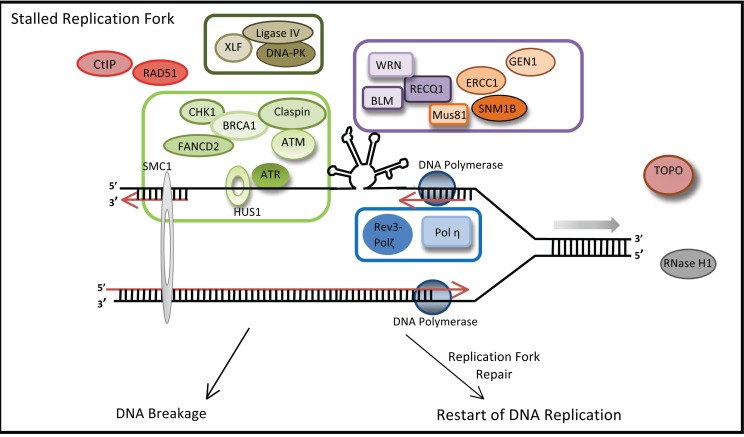Fig. (3).
Proteins involved in chromosomal fragility. During replication fork progression, replication stress can uncouple the helicase complex from the DNA polymerase, allowing for single-stranded DNA to form stable secondary structure that can cause fork stall and collapse. Proteins in-volved in the ATR pathway (light green box) are important for fragile site stability, as loss of expression leads to an increase in breakage. Sever-al proteins able to recognize and resolve DNA secondary structures (purple box) are also essential for fragility. Repair pathway proteins, such as those in NHEJ (dark green box) and translesion synthesis (blue box), also stabilize fragile sites..

